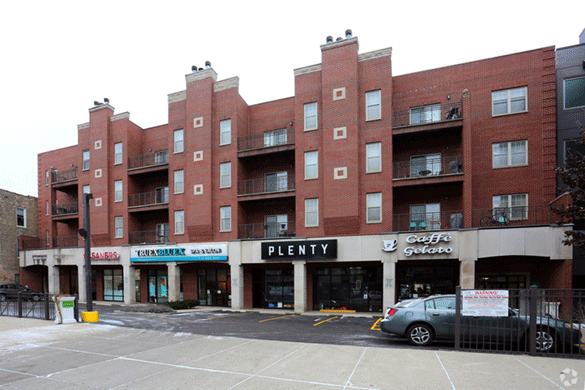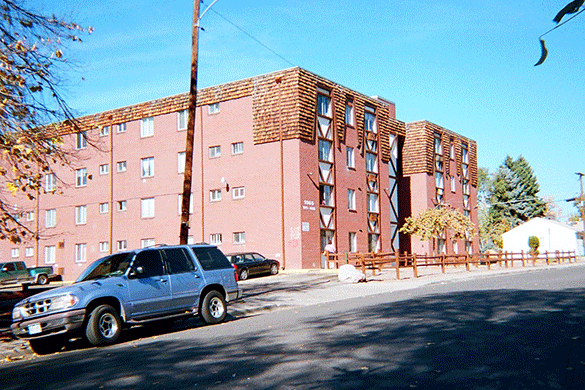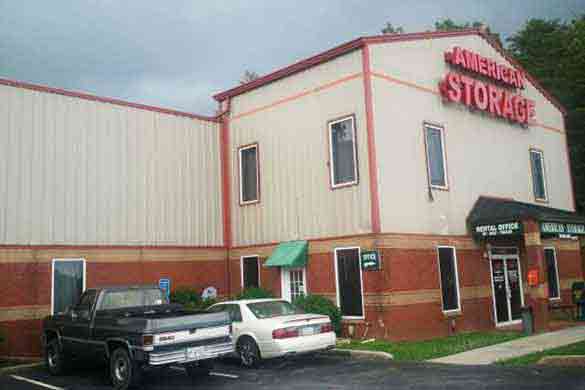1031 Exchange Loan
At Select Commercial, we pride ourselves on 35+ years of experience helping clients with their commercial mortgage needs. Our commitment to excellence has helped create our reputation as a top-tier broker in the area. If you're specifically interested in a 1031 Exchange Loan, we have dedicated resources to guide you. For those seeking comprehensive rates on all loan products available across the 48 states, our comprehensive commercial mortgage rate page offers competitive rates for loans starting at $1,500,000.
1031 Exchange Loan Rates - updated 02/14/26
| Minimum Loan Size $1,500,000 | Get Free Quote | ||
|---|---|---|---|
| Loan Product | Rate* | LTV | |
| Multifamily | 5.18% | Up to 80% | |
| Commercial Real Estate Loan | 6.23% | Up to 75% | |
| Single Tenant Lease | 5.83% | Up to 75% | |
| Business Real Estate Loan | 6.03% | Up to 90% | |
1031 Exchange Loan Outlook for 2025

As we progress into 2025, the 1031 exchange landscape continues to evolve, influenced by economic shifts, legislative developments, and market dynamics. Investors utilizing 1031 exchanges, a tax-deferral strategy allowing the reinvestment of proceeds from property sales into similar properties, must stay informed to navigate the current environment effectively.
Economic and Legislative Influences
In late 2024, the Federal Reserve implemented a series of rate cuts, reducing the federal funds rate by a total of 100 basis points. These actions aimed to control inflation and stabilize the labor market. Despite these cuts, long-term interest rates, such as the 10-year Treasury yield, have experienced increases, reflecting investor concerns about future inflation. As of February 19, 2025, the 10-year Treasury stands at 4.575%.
Legislatively, the 1031 exchange remains a focal point. The current administration’s 2025 budget proposal includes plans to eliminate like-kind exchanges, aiming to generate approximately $19.6 billion in revenue over the next decade. This proposal has raised concerns within the real estate sector, emphasizing the importance for investors to monitor policy developments closely.
Sector-Specific Trends
- Multifamily Properties: Urbanization and a preference for renting continue to drive demand for multifamily units. Lenders are offering competitive commercial mortgage rates for these properties, with rates starting at 5.55% as of February 19, 2025.
- Industrial Properties: The growth of e-commerce sustains the need for industrial and warehouse spaces. While there was a slowdown in 2024, projections for 2025 indicate a strengthening market as new supply diminishes and demand rebounds.
- Office and Retail Sectors: These sectors face challenges due to hybrid work models and the rise of e-commerce. High vacancy rates and changing consumer behaviors have led lenders to adopt cautious approaches, often resulting in stricter loan terms and higher rates for these property types.
Commercial Mortgage Rates Overview
As of February 14, 2026, commercial mortgage rates vary by property type and loan specifics. For instance, multifamily loans start at 5.18%, while rates for office buildings and retail properties begin at 6.23%. Investors must consider factors such as property location, loan-to-value ratios (LTV), and debt service coverage ratios (DSCR) when seeking favorable financing terms.
We are a nationwide commercial mortgage broker specializing in all types of commercial mortgage loans, Apartment Loans, Freddie Mac Multifamily Loans, and credit tenant lease loans
Q & A - 1031 Exchanges (Like-Kind Exchanges) – IRS Guidelines
Real estate investors who own investment and business property may qualify for a Section 1031 exchange. The 1031 exchange guidelines pertain to Individuals, C corporations, S corporations, partnerships (general or limited), limited liability companies, and trusts.
With a Section 1031 exchange, there must be an exchange of properties. The simplest type of Section 1031 exchange is a simultaneous swap of one property for another. A real estate owner will sell one business or investment property and use the proceeds of the sale to purchase another similar property within the required timeline established by the IRS.
Both the property that you sell and the new property you purchase must meet certain requirements. Both properties must be used for business or for investment. Property used primarily for personal use, like a primary residence or vacation home, do not qualify for a 1031 exchange. Both properties must qualify as "like-kind." Like-kind property is property of the same nature, character or class. Most real estate properties are considered to be like-kind to other real estate. For example, if an investor sells a 4-unit home and purchases a large apartment building, those properties are still considered like-kind as both properties are classified as investment real estate.
While a 1031 exchange does not have to be an exchange of properties, you must meet two time limits. Failure to meet the timing guidelines will cause the entire gain to be taxable. These limits cannot be extended for any circumstance or hardship, except in the case of presidentially declared disasters.
First Time Limit: the seller of a property has 45 days from the date of sale to identify potential replacement properties. This identification must be in writing and signed. It must be given to a person involved in the exchange, such as the seller of the new property or a qualified intermediary. The new property must be clearly described and identified using a street address and/or legal description.
Second Time Limit: the new, or replacement property must be purchased, and the exchange completed, within 180 days after the sale of the original property.
The information provided here is not meant to be all inclusive and is presented for general discussion purposes only. Please do not rely on this information as authoritative. Please consult your attorney or tax professional for specific advice.
Our Benefits
Apartment building loan rates start as low as 5.18% (as of February 14th, 2026)
Commercial mortgage loan rates start as low as 5.83% (as of February 14th, 2026)
• A commercial mortgage broker with over 30 years of lending experience
• No upfront application or processing fees
• Simplified application process
• Financing up to 80% LTV
• Terms and amortizations up to 30 years
• Long term fixed rates
• Loans for purchase and refinance, including cash-out
• 24 hour written pre-approvals with no cost and no obligation
Our Reviews
Recent Closings
What Is a 1031 Exchange Loan?
A 1031 exchange loan is a financing option specifically designed to facilitate real estate transactions under Section 1031 of the U.S. Internal Revenue Code, which allows investors to defer capital gains taxes when exchanging one investment property for another of like-kind. These loans are crucial for investors seeking to leverage their equity efficiently while adhering to the strict timelines and requirements of a 1031 exchange.
Understanding the 1031 Exchange Process
A 1031 exchange, also known as a like-kind exchange, allows real estate investors to defer capital gains taxes by reinvesting proceeds from the sale of one property into a qualifying replacement property. However, the process is governed by strict IRS regulations, including:
- 45-Day Identification Rule – The investor must identify potential replacement properties within 45 days of selling the relinquished property.
- 180-Day Completion Rule – The acquisition of the replacement property must be finalized within 180 days of the initial sale.
- Like-Kind Requirement – The exchanged properties must be of similar nature, generally referring to investment or business-use properties.
- Qualified Intermediary (QI) Requirement – Proceeds from the sale must be handled by a qualified intermediary (QI) and cannot be directly accessed by the investor.
Given these stringent requirements, many investors turn to 1031 exchange loans to ensure a seamless transition from one property to another.
How a 1031 Exchange Loan Works
A 1031 exchange loan helps investors finance the purchase of a replacement property while ensuring compliance with 1031 exchange rules. There are two primary scenarios where these loans are most beneficial:
- Bridge Loans for 1031 Exchanges
- Investors may need temporary financing when the sale of the relinquished property does not perfectly align with the purchase of the replacement property.
- Bridge loans allow investors to acquire the new property first and then repay the loan after selling their original property.
- These are short-term loans, usually with terms ranging from 6 to 24 months.
- Permanent Loans for 1031 Exchange Properties
- If an investor plans to hold the replacement property long-term, they may use traditional commercial loans or non-recourse loans to finance the acquisition.
- Loan terms typically range from 5 to 30 years, with fixed or variable interest rates.
- Investors often seek low loan-to-value (LTV) ratios and favorable debt service coverage ratios (DSCR) to qualify for competitive interest rates.
Key Benefits of a 1031 Exchange Loan
- Preserves Investment Capital – By deferring capital gains taxes, investors retain more equity to reinvest in higher-value properties.
- Enables Faster Transactions – 1031 exchange loans help meet the strict IRS deadlines for identifying and acquiring replacement properties.
- Offers Leverage for Growth – Investors can expand their portfolios without liquidating assets or paying hefty taxes.
- Supports Value-Add Strategies – Investors can use financing to acquire properties with higher income potential, increasing overall return on investment (ROI).
Types of 1031 Exchange Loans
- Conventional Commercial Loans – Best suited for stabilized properties with strong financials and long-term investment potential.
- Non-Recourse Loans – Protect investors from personal liability, making them ideal for large-scale commercial acquisitions.
- Bridge Loans – Provide short-term financing to facilitate a seamless exchange between properties.
- Hard Money Loans – Quick-access financing for investors needing fast closings, though with higher interest rates.
- SBA 504 & 7(a) Loans – Available for investors acquiring commercial properties used in business operations.
1031 Exchange Loan Considerations
- Lender Requirements – Lenders typically evaluate the income potential of the replacement property, the investor’s financial strength, and adherence to IRS regulations.
- Loan-to-Value (LTV) Ratios – Most lenders offer LTV ratios of 65% to 80%, depending on property type and location.
- Debt Service Coverage Ratio (DSCR) – A DSCR of 1.25x or higher is often required to qualify for competitive loan terms.
- Market Conditions – Interest rates and lender flexibility depend on commercial real estate trends, making it essential for investors to stay informed.
Final Thoughts
A 1031 exchange loan is a powerful tool for real estate investors looking to defer taxes and reinvest in higher-value properties. By leveraging tailored financing solutions, investors can optimize their portfolios, increase cash flow, and enhance long-term wealth accumulation. However, selecting the right loan type and working with experienced lenders is crucial to ensuring a smooth and compliant 1031 exchange process.









